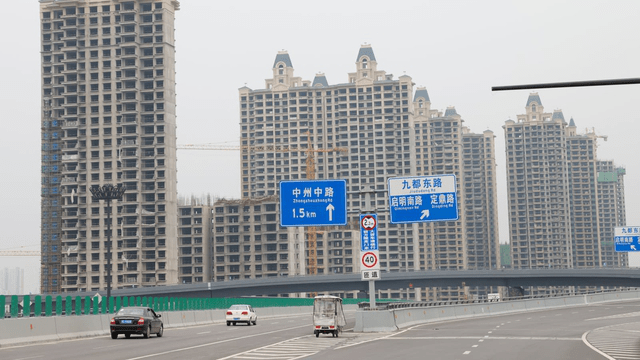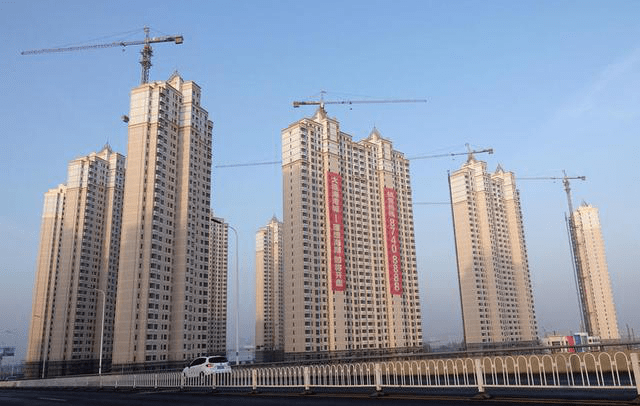Real estate is important to China, being the biggest driver of economic growth since President Xi Jinping came to power nearly a decade ago. House prices have skyrocketed, galloping six times over the past 15 years as middle-class people flocked to build houses and buy and sell land. The boom caused speculation to expand and the market was filled with traders who liked to buy and sell quickly.
The inevitable consequence is that the pure people will not have enough houses to live in, or rather, no houses to buy. Mainland authorities are therefore forced to tackle the ballooning real estate bubble and smooth out inequality.
However, in some ways, the intervention of the Chinese government helps to re-establish the order of the real estate market, but there are many potential risks that make the financial system and the world economy wobble.
SOURCE OF CRISIS
In 1998, when China re-established its housing market after decades of strict supervision of individual purchases, only a quarter of the population lived in the city. Currently, the urban population has increased by 480 million people, accounting for a quarter of the mainland population. This causes the real estate market to scale rapidly to catch up with the increase in demand.
Real estate has been China’s biggest driver of economic growth since President Xi Jinping came to power nearly a decade ago.
Development means increasing prices, so much so that many properties in big cities like Shenzhen become overpriced, based on per capita income. The local government, which relies on the sale of public land to make a profit, is encouraging the market to develop further, with the ambition to meet all of its long-term economic growth goals.
The consequence is debt husband debt. The issuance of foreign bonds in USD has exploded, increasing from 675 million USD in 2009 to 64.7 billion USD in 2020. Interest rates are also facing increasing pressure.
As of the end of last year, developers owned about $207 billion in foreign bonds, about a quarter of all bonds issued by mainland China. Unclear debts make credit risk present.
WHAT DOES CHINA DO?
For years, China has struggled to defuse its massive debt bombs, fearing they could trigger a serious financial crisis. In mid-2020, the government began to tighten new financing sources for real estate developers, and asked banks to slow down the rate of mortgage lending.
Specifically, China imposes “three red lines” guidelines, which require real estate developers to submit detailed financial reports to regulators such as the People’s Bank of China, Central Bank of China, Ministry of Housing and Urban-Rural Development, State Construction Administration. The financial position will then be assessed based on 3 criteria, including the ratio of liabilities (excluding pre-collections) must be less than 70%, debt-to-equity ratio less than 100% and the cash-to-short-term debt ratio should be equal to 1. If developers fail to meet 1, 2, or all three of the “red lines,” the regulator will put limits on the debt ratio.
Explaining this policy, mainland officials said that “three red lines” will help China manage the land market well and allocate credit properly to the real estate sector. They are concerned about the amount of capital absorbed by the real estate industry, so limiting housing credit means other sectors will also benefit.
In addition, because China’s real estate market is highly cyclical, consisting of four main stages of recovery, expansion, oversupply and recession, the government wants to stabilize the market by providing a long-term and sustainable constraints.
IMPACTS OF POLICY ONLY
However, the “three red lines” policy makes it difficult for developers to get loans. At least 18 companies have defaulted on foreign bonds since the crackdown began. Evergrande Corporation is the most obvious example.
The sell-off of Evergrande shares and bonds by investors has put pressure on real estate companies across China.
The country’s largest real estate developer, said to be the country’s largest, first declared default in December 2021 after it failed to pay its $300 billion bond debt. The establishment of a new risk management committee was quickly announced to prevent a domino effect.
“Investors’ sell-off of Evergrande shares and bonds has put pressure on real estate companies across China. Investors fear that Evergrande isn’t the only company at risk.” ‘, said the CEO of Kingston Securities.
It is true that after Evergrande, real estate groups Kaisa Group and Sunac China also collapsed. Experts say this is a major milestone in the long-running tragedy of China’s real estate industry, as Evergrande and a series of other indebted real estate companies are having a serious impact on China’s financial market. , even as Beijing officials repeatedly sought to reassure investors.
“The default of Evergrande and Kaisa Group will bring us into a period of recession in Chinese assets. Systemic risks will gradually be replaced by specific risks,” said Mr. Usson, a credit analyst. used at Federated Hermes emphasizes.
China’s real estate market fell into an unstoppable decline. Home sales by the top 100 developers have halved in the first four months of this year. In March, real estate loan growth also decelerated, marking a record low in more than two decades.
The construction industry is in a similar situation after recording the largest decline in 6 years. This effect is especially serious, because the real estate sector accounts for nearly a quarter of China’s gross domestic product.
Efforts to RECOVERY THE MARKET
Across China, millions of square meters of unfinished apartments have been neglected as developers fail to address cash flow issues. A wide-ranging crisis pushed millions of down-front homebuyers into dire straits.
The risk of instability increases. A historic sell-off in foreign bonds will negatively affect the domestic credit market, then continue to “eat away” the most vulnerable real estate companies.
The government then had to adjust some rules that helped stabilize the market, such as encouraging the central bank to increase support for some troubled developers, while ensuring mortgage loan growth. .
This effort is said to have reaped some “sweet fruits” when, at the beginning of this year, China’s real estate market began to grow stably again after an unusually long period of deceleration because of government cuts. According to data from the National Bureau of Statistics of China (NBS), new house prices in 4 first-class cities in China, including Beijing, Shanghai, Shenzhen and Guangzhou in February 2022 0.5% increase from the previous month.
The mainland government always tries to uphold the principle of “housing is for living, not for speculation”.
Experts said that the basic market gradually recovered in the context of the mainland government’s efforts to uphold the principle of “housing is for living, not for speculation”, and committed to keeping land prices stable. housing prices to match market expectations.
In addition, according to the announcement of the People’s Bank of China (PBOC), loans to finance affordable housing projects will gradually be accessed more flexibly from February 8. The decision comes after banks were encouraged to lend more to property developers and speed up mortgage approvals to ease the fallout from the Evergrande crisis.
Source: CafeF
Source: Vietnam Insider



